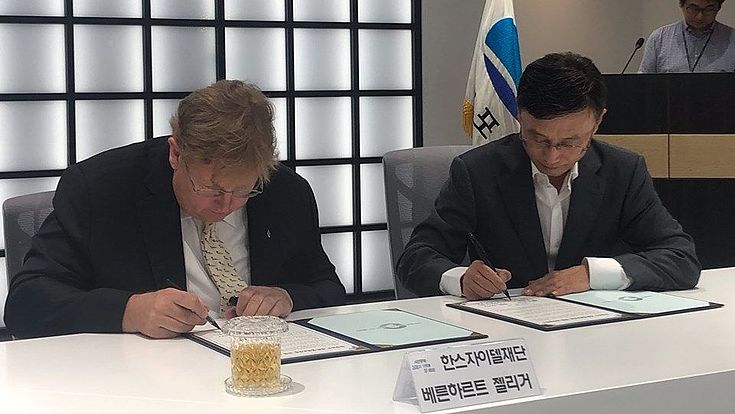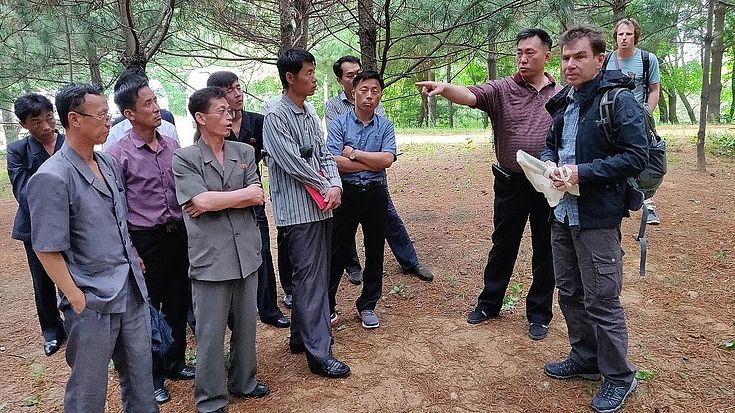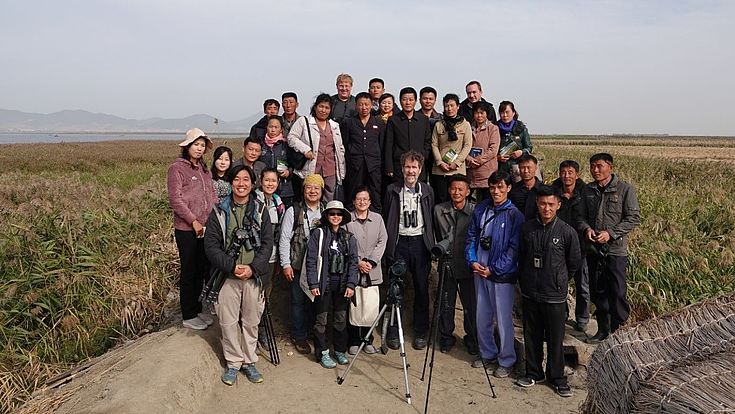Publication
Our Work in 2019
In 2019 the Foundation has been active to promote environmental conservation and cooperation between the DPRK and the world, especially on the Korean Peninsula and in Northeast Asia. Within the framework of the United Nations Ramsar Convention on Wetlands, the Mundok Migratory Bird Reserve is one of the first two Ramsar Sites of International Importance in North Korea. This year the Hanns Seidel Foundation (HSF) Korea was able to coordinate the visit of a delegation from Hong Kong to the Mundok Reserve, as well as contribute to the first Swan Goose Festival in Mundok. Especially the education and awareness of the local public about the importance of environmental consciousness and the wise use of wetlands was the focus of the event.

Another important refuge for migratory birds on the Korean Peninsula is the Han River estuary that forms the westernmost border between North and South Korea. Recently, plans for a peaceful use of the region have been discussed. In 2019 HSF Korea conducted various activities to support this peaceful development. Along with field trips to the estuary for bird surveys seminars and conferences were organized and finally, a Memorandum of Understanding between HSF and Gimpo City was signed. Both parties decided on a close cooperation and to share important experiences regarding the Han River estuary.

In 2019 HSF Korea not only focused on wetlands, but also dealt with the issue of deforestation and reforestation. The foundation supported activities for a National Forest Inventory of North Korea by sharing experiences and expertise of the German Forest Inventory through Dr. Heino Polley, the vice-head of the Thünen Institute for Forest Ecology. A seminar on the importance of amphibians for the ecosystem was held and model reforestation sites and tree nurseries were visited. Experts like Dr. Polley not only assist in exchanging special knowledge, but also in building transnational conversations and connections that can lead to a peaceful development on the Korean Peninsula and beyond.
You can find out more about the activities related to environmental conservation and cooperation in the booklet for 2019.

